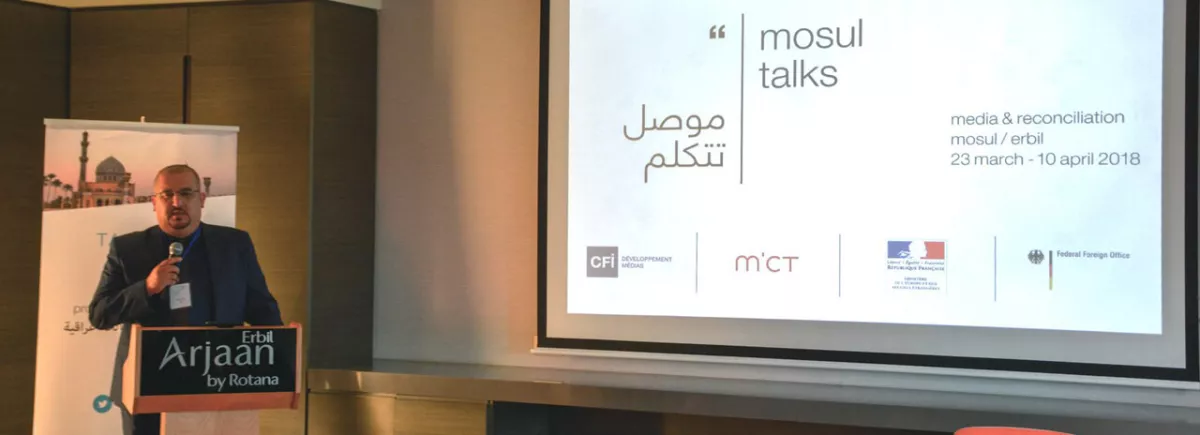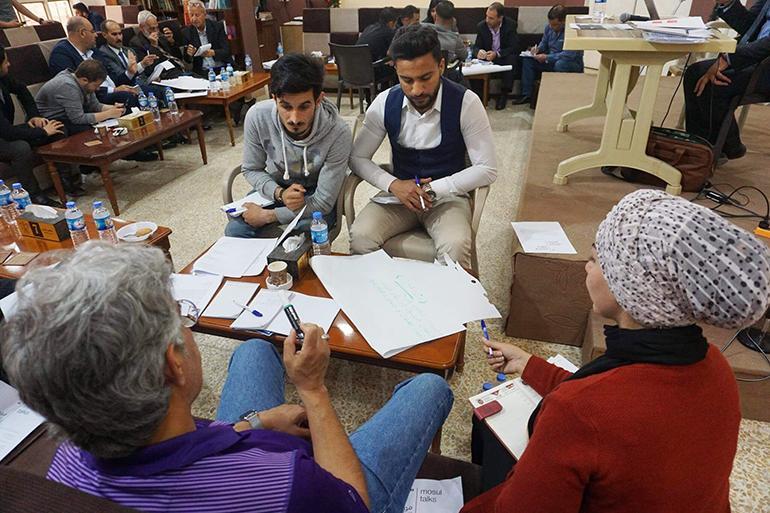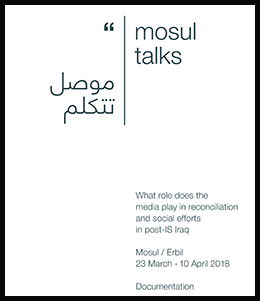
Mosul talks: the media and reconciliation in the wake of ISIS
Related project
TasalahIn March and April 2018, a series of workshops in Mosul and a wrap-up conference in Erbil brought together Iraqi journalists and stakeholders working in the field to discuss the role of the media in the country's stabilisation process.
Released from the grip of ISIS in July 2017 after nine months of fierce fighting, Mosul and the surrounding province has been bled dry: half of the population has been forced to flee, while more than 20,000 homes have been completely destroyed. Now, the social, political and economic challenges facing the country's second largest city are crucial to the future of Iraq.
Apart from the costs of rebuilding infrastructure, a key question remains to be answered: how to restore the city's identity and its melting pot of diversity in the face of inter-community tensions, with people's confidence in the central government at rock bottom. The role of the media in this process of reconciliation is indispensable, as they can constitute either a tool to help achieve social cohesion, or the very opposite.
Journalists, members of local civil society, political representatives, the media and researchers from Mosul met and exchanged views during these "Mosul talks": three days of workshops in their city and a wrap-up conference in Erbil, organised by CFI and its German partner,
MiCT.
Mosul was chosen as venue for a very good reason, the intention being to help the city's people achieve their goal of a return to normal life.

Education, transitional justice and governance were the three themes discussed during the talks. In particular, participants had to determine what media solutions could be implemented in these three areas to support stabilisation. Participants could speak freely and voice their fears, particularly that of seeing the international community focus solely on the "nuts and bolts" of reconstruction, with little regard for the importance of the social aspect:
- how can we reintegrate marginalised groups?
- how can we re-educate children and adolescents who have been indoctrinated for several years under ISIS?
- how can we rely on local governance to avoid repeating past mistakes

Restoring confidence in the media
Reconstruction does not necessarily mean reconciliation, participants insisted. They pointed out that social cohesion and stabilisation must be tackled with a holistic approach, covering housing and infrastructure, health and education, economic development as well as culture and the media.
Reconciliation is above all a process that must involve local stakeholders working in the field, as they alone are capable of carrying out this work. The media, for their part, have a major role in ensuring victims' voices do not go unheard and documenting the situation from different perspectives to ensure the public receives reliable information.
Several proposals were identified, for example early intervention, focusing on the educational content of university journalism courses to ensure they provide proper training with a mix of theory and practice, including the subject of reconciliation. At a time of extreme polarisation within the media, the responsibility of journalists was also emphasised: to put an end to propaganda and incitement to hatred, the independence of the media is paramount. To combat the spread of hate speech, particularly on social networks, tools for verification and education in respect of the media, especially for young people, must be created.
Only by establishing professional practices within the media will confidence be restored. To this end, it is essential that the government make a commitment to support freedom of the press and its independence.
Lastly, in the more specific case of Mosul, some mentioned the importance of “solutions journalism": speaking about the positive and real facts of social cohesion rather than destruction. Indeed, solutions journalism will be promoted by CFI in forthcoming initiatives under the Tasalah project, assisting journalists from Mosul and the Nineveh Plains in the production of multimedia content on social cohesion.



